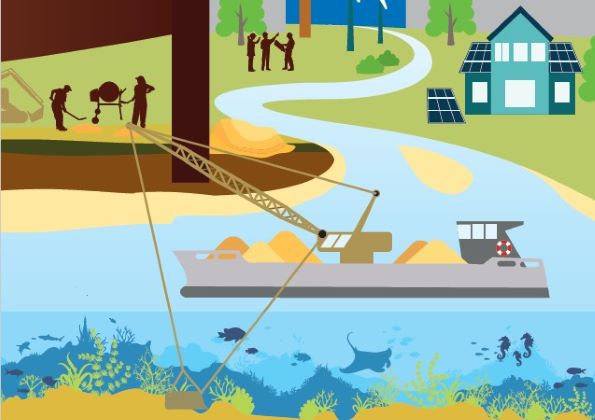UN body proposes international standard for marine sand extraction

The United Nations Environment Programme (UNEP) has recommended an international standard to govern the sustainable extraction of sand from marine environments. The call is part of a report examining options to better manage the global use of sand and gravel, which currently stands at 50 billion tonnes each year.
Arguing for the new international standard, the report notes: “Unlike terrestrial sand extraction, coastal and marine dredging projects are usually awarded through public tenders open to international companies.
“Having an international standard which can be used across the globe in public tenders could therefore strongly improve extractive practices and strengthen global efforts to protect the marine environment.”
Among several suggestions, the report also recommends that the extraction of sand from beaches be banned due to its importance for coastal resilience, the environment and the economy.
The report notes that extracting sand where it plays an active role - such as rivers, and coastal or marine ecosystems - can lead to erosion, salination of aquifers, loss of protection against storm surges and impacts on biodiversity. The authors urged governments, industries and consumers to price sand in a way that recognises its true social and environmental value.
The report, titled ‘Sand and Sustainability: 10 strategic recommendations to avert a crisis’, describes sand as the world’s most used resource after water.
“Given our dependency on it, sand must be recognised as a strategic resource and its extraction and use needs to be rethought,” the authors wrote.
While the advice given in this editorial content has been developed using the best information available, it is intended purely as guidance to be used at the user’s own risk. No responsibility is accepted by CEDA or by the Intent Communications Ltd or by any person, firm, corporation or organisation who or which has been in any way concerned with the furnishing of information or data, the compilation, publication or any translation, supply or sale of this Guidance for the accuracy of any information or advice given herein or for any omission herefrom or from any consequences whatsoever resulting directly or indirectly from compliance with or adoption of guidance contained therein even if caused by a failure to exercise reasonable care.